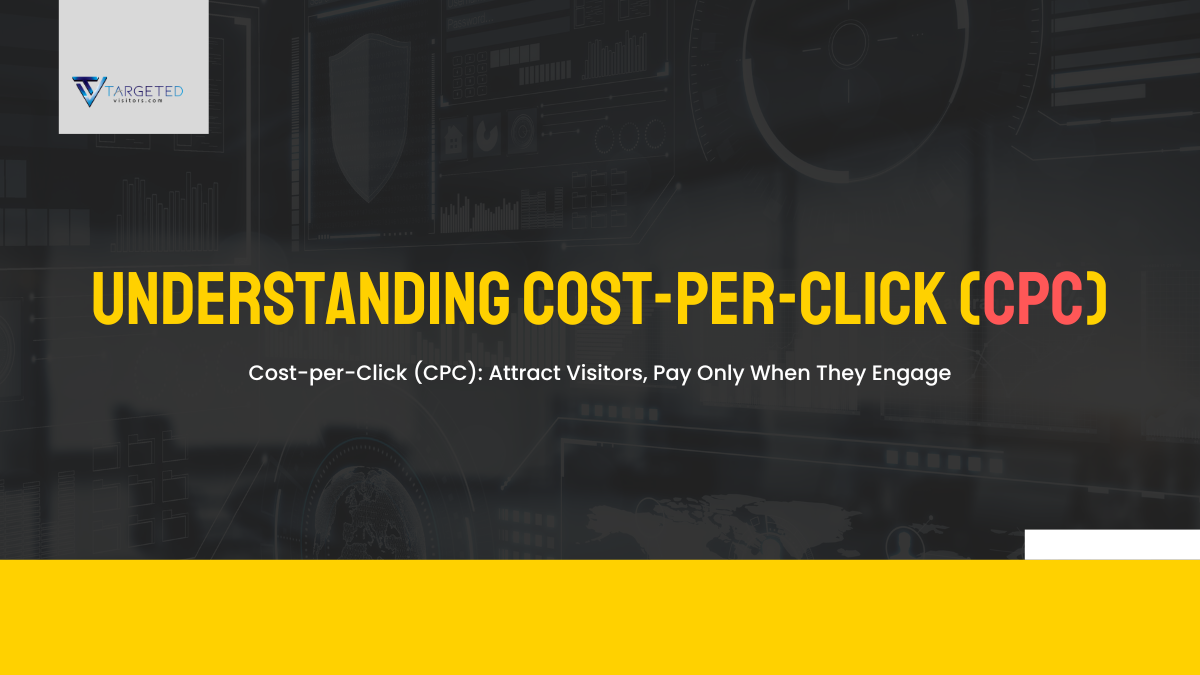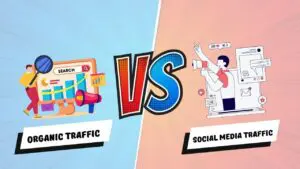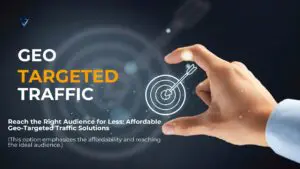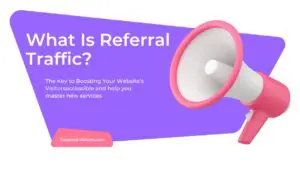Contents
- 1 Demystifying Clicks: Understanding Cost-per-Click (CPC) Advertising
- 2 Here’s a breakdown:
- 3 How it Works:
- 4 Whether CPC is worth it for you depends on several factors:
- 5 Here’s how to decide if CPC is worth it for you:
- 6 Here’s how to get started with Cost-per-Click (CPC) advertising:
- 7 Getting Started Resources:
Demystifying Clicks: Understanding Cost-per-Click (CPC) Advertising
Understanding Cost-Per-Click (CPC) Advertising – In the world of online advertising, Cost-per-Click (CPC) is a pricing model where you, the advertiser, pay a fee each time someone clicks on your ad. It’s a popular strategy for driving targeted traffic to your website, landing page, or specific product offering.
Here’s a breakdown:
- Definition: CPC is the cost you incur for each click on your ad. It’s calculated by dividing your total ad spend by the number of clicks your ad receives. (Total Cost / Clicks = CPC)
- Benefits:
- Demystifying Clicks: Understanding Cost-per-Click (CPC) Advertising. Therefore, Pay Only When They Engage (Targeted Visitors)
- Measurable Results: You can easily track your CPC and return on investment (ROI) to see how your ads are performing.
- Budget Control: You set a maximum CPC bid, ensuring you don’t exceed your advertising budget.
- Flexibility: CPC allows you to target specific demographics, interests, and keywords to reach the right audience.
How it Works:
- Bidding: You set a maximum CPC bid, which is the highest amount you’re willing to pay for a click. This bid determines how often your ad appears in search results or on other platforms.
- Auction: When someone searches for a relevant keyword or visits a website (Organic Traffic) displaying ads, an auction occurs. Advertising platforms consider your bid, the ad’s quality, and other factors to determine which ad gets displayed.
- Click and Charge: If your ad wins the auction and someone clicks on it, you’ll be charged the actual cost per click, which can be lower than your maximum bid.
In essence, CPC allows you to target your ideal customer and only pay when your ad generates genuine interest. It’s a performance-based advertising model that offers a cost-effective way to reach new audiences and grow your online presence.
Whether CPC is worth it for you depends on several factors:
Pros:
- Targeted Traffic: You attract people genuinely interested in what you offer, leading to higher conversion rates (turning visitors into customers).
- Measurable Results: Consequently, you can track your clicks, conversions, and ROI to see the effectiveness of your campaigns and adjust your strategy accordingly.
- Budget Control: You set a maximum CPC bid, giving you control over your advertising spend.
- Flexibility: You can target specific demographics, interests, and keywords to reach the right audience for your business.
Cons:
- Can be Competitive: Depending on your industry and keywords, CPC bidding can get competitive, driving up your costs.
- Requires Ongoing Management: Monitoring and optimizing your campaigns are crucial for success.
- Not Guaranteed Conversions: Clicks don’t guarantee sales. You still need a high-converting landing page and compelling offer.
Here’s how to decide if CPC is worth it for you:
- Do you have a well-defined target audience? CPC works best when you know exactly who you want to reach.
- Do you have a clear offer and a high-converting landing page? CPC drives traffic, but your landing page needs to convert clicks into sales.
- Can you track and analyze your results? Monitoring your CPC campaigns is essential for optimizing performance and maximizing ROI.
Alternatives to Consider:
- SEO (Search Engine Optimization): This is a long-term strategy for improving your website’s organic ranking in search results, leading to free, targeted traffic.
- Social Media Marketing: Building a strong social media presence allows you to connect with potential customers and drive traffic to your website organically.
- Content Marketing: Creating valuable content that educates and engages your target audience attracts visitors and establishes your brand as an authority.
Understanding Cost-Per-Click (CPC) ultimately, the best approach often involves a combination of strategies. Consider your budget, resources, and target audience to determine if CPC is the right fit for your marketing mix. If you’re unsure, start with a small CPC campaign and see how it performs. You can always adjust your strategy based on the results.
Here’s how to get started with Cost-per-Click (CPC) advertising:
1. Choose Your Platform:
As mentioned earlier, the ideal platform depends on your target audience, industry, and goals. Here’s a quick breakdown:
- Search Engines (Google Ads, Microsoft Advertising): Best for targeting users actively searching for relevant keywords.
- Social Media Advertising (Facebook Ads, Instagram Ads): Great for brand awareness and engagement based on demographics and interests.
- Display Advertising Networks (Google Display Network): Ideal for broader brand awareness and retargeting website visitors across various websites.
2. Set Up Your Campaign:
- Define Your Goals: Do you want website traffic, lead generation, or sales?
- Target Your Audience: Who are you trying to reach? Define demographics, interests, and online behavior.
- Set Your Budget: Determine how much you’re willing to spend per day or campaign.
- Create Compelling Ads: Craft clear, engaging ad copy that resonates with your target audience.
- Bid for Keywords (Search Ads): Set a maximum amount you’re willing to pay for each click on relevant keywords.
Getting Started Resources:
- Google Ads: https://ads.google.com/home/how-it-works/
- Microsoft Advertising: https://ads.microsoft.com/
- Facebook Ads: https://business.facebook.com/
- Instagram Ads: https://www.facebook.com/business/ads/instagram-ad
3. Monitor and Optimize:
- Track your CPC, clicks, conversions, and ROI to see how your campaign performs.
- Analyze which keywords and ad copy perform best.
- Adjust your bids, targeting, and ad content to improve performance and reduce your CPC.
Cost-per-Click (CPC) and Search Engine Results Pages (SERPs) are intertwined when it comes to online advertising. Here’s how they connect:
SERPs: These are the pages displayed by search engines like Google when you enter a search query. They typically contain a mix of organic search results (websites that rank naturally based on algorithms) and paid search results (ads from advertisers who bid on keywords).
CPC: This advertising model charges you, the advertiser, each time someone clicks on your ad displayed on a SERP. The cost is determined by an auction system where factors like your bid, ad quality, and keyword competition play a role.
Here’s a breakdown of the interaction:
- Target Audience: You identify relevant keywords related to your product or service that your target audience might search for.
- Bidding: You set a maximum CPC bid you’re willing to pay for each click on your ad for those keywords.
- Auction: When someone searches for a relevant keyword, an auction occurs among advertisers targeting that keyword.
- Ad Placement: The ad with the highest ranking (considering bid, quality score, and other factors) gets displayed in a prominent position on the SERP, often above organic results.
- Clicks and Payment: If someone clicks on your ad, you’re charged the actual CPC (which can be lower than your maximum bid) and your ad directs them to your landing page.
Benefits of using CPC on SERPs:
- Targeted Traffic: You reach people actively searching for what you offer, increasing the likelihood of conversions (turning clicks into sales or leads).
- Measurable Results: You can track clicks, conversions, and ROI to see how your ads are performing and adjust your strategy accordingly.
- Control Over Budget: You set a maximum bid, ensuring you don’t exceed your advertising budget.
However, there’s competition on SERPs:
- High CPC Bids: Depending on your industry and keywords, competition can drive up CPC costs.
- Organic Search Ranking: Ranking high organically through SEO (Search Engine Optimization) can provide free, targeted traffic alongside paid ads.
Overall, CPC advertising on SERPs offers a powerful way to reach potential customers actively searching for your products or services. By understanding how SERPs work and targeting the right keywords with competitive bids, you can attract qualified visitors and grow your online presence.
Additional Tips:
- Consider professional help: If you’re new to CPC advertising, consider working with a marketing agency or freelancer to optimize your campaigns for better results.
- Start small and gradually scale your campaigns: Begin with a modest budget and experiment with different targeting and bidding strategies before ramping up your efforts.
- Test and learn: Regularly analyze your data and adjust your approach based on what works best for your audience and goals.
Remember, CPC advertising can be a powerful tool for reaching your target audience and achieving your marketing goals. By choosing the right platform, setting up your campaigns effectively, and continuously optimizing your strategy, you can maximize your return on investment (ROI).






